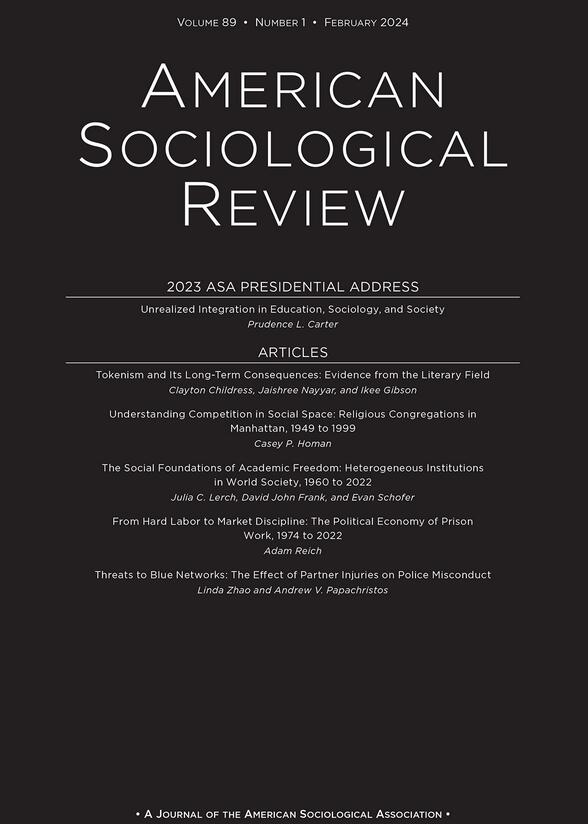The Political Context and Infant Health in the United States
IF 7.1
1区 社会学
Q1 SOCIOLOGY
引用次数: 12
Abstract
Most social determinants of health are shaped by political decisions. However, beyond specific policies, there is limited empirical investigation into the consequences of the changing political context on population health in the United States. We examine a salient political factor—the party of the president and governor—as a determinant of infant health between 1971 and 2018 using a battery of fixed-effects models. We focus on infant health because it has far-reaching implications for future population health and inequality. Our analysis yields three findings: (1) Democratic presidents have a beneficial effect on infant health outcomes, with stronger effects for Black infants compared to White infants. (2) The president’s party effect materializes after two years of a Democratic transition, and remains elevated until the end of the party’s tenure in office. (3) Specific measurable social policies appear to play a minor role in explaining the beneficial effect of Democratic administrations. Our findings suggest the party in power is an important determinant of infant health, particularly among vulnerable populations, and they invite a deeper examination of mechanisms.美国的政治背景与婴儿健康
大多数健康的社会决定因素是由政治决定的。然而,除了具体政策之外,对美国不断变化的政治环境对人口健康的影响的实证调查有限。我们使用一组固定效应模型,研究了一个突出的政治因素——总统和州长所在的政党——作为1971年至2018年间婴儿健康的决定因素。我们关注婴儿健康,因为它对未来人口健康和不平等具有深远影响。我们的分析得出了三个发现:(1)民主党总统对婴儿健康结果有有益影响,与白人婴儿相比,黑人婴儿的影响更大。(2) 总统的党派效应在民主党过渡两年后显现,并一直保持到该党任期结束。(3) 具体可衡量的社会政策似乎在解释民主党政府的有益效果方面发挥了次要作用。我们的研究结果表明,执政党是婴儿健康的重要决定因素,尤其是在弱势人群中,这需要对机制进行更深入的研究。
本文章由计算机程序翻译,如有差异,请以英文原文为准。
求助全文
约1分钟内获得全文
求助全文
来源期刊

American Sociological Review
SOCIOLOGY-
CiteScore
13.30
自引率
3.30%
发文量
35
期刊介绍:
The American Sociological Association (ASA) is a non-profit membership association established in 1905. Its mission is to advance sociology as a scientific discipline and profession that serves the public good. ASA is comprised of approximately 12,000 members including faculty members, researchers, practitioners, and students in the field of sociology. Roughly 20% of the members work in government, business, or non-profit organizations.
One of ASA's primary endeavors is the publication and dissemination of important sociological research. To this end, they founded the American Sociological Review (ASR) in 1936. ASR is the flagship journal of the association and publishes original works that are of general interest and contribute to the advancement of sociology. The journal seeks to publish new theoretical developments, research results that enhance our understanding of fundamental social processes, and significant methodological innovations. ASR welcomes submissions from all areas of sociology, placing an emphasis on exceptional quality.
Aside from ASR, ASA also publishes 14 professional journals and magazines. Additionally, they organize an annual meeting that attracts over 6,000 participants. ASA's membership consists of scholars, professionals, and students dedicated to the study and application of sociology in various domains of society.
 求助内容:
求助内容: 应助结果提醒方式:
应助结果提醒方式:


